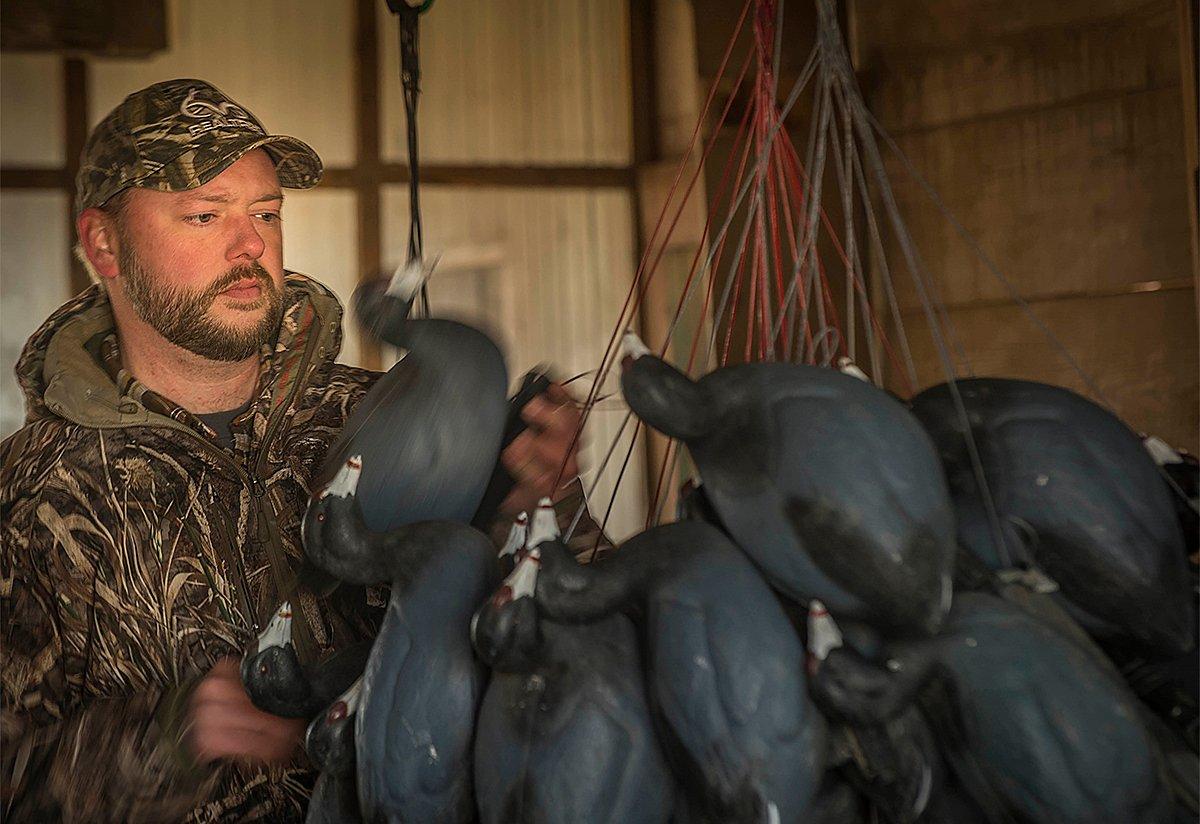The Season is Finished, but the Lifestyle Remains
That bare spot in the driveway tears at your soul. Your duck boat was parked there for several months, brimming with decoys and blind panels, and coated with muck, feathers and black dog hair.
Now, only the driveway remains. You've entered post-duck-season depression.
Your feelings are normal. Most hardcore waterfowl nuts fall into an extended period of mourning when the campaign ends. No more 3 a.m. alarms, frigid boat rides or glowing sunrises — just real life.
Don't despair. You can beat duck depression. Try these post-hunt fixes.
Reflect and Remember
Look back on the season, and remember the good experiences. After all, hunting is supposed to be enjoyable, right? Further, there's value and reverence in remembrance.
Sort through photographs, and share them with buddies. Chart your dog's progress on marks, handling and retrieves. Get those prized birds you froze to the taxidermist. And enjoy the harvest by cooking creative waterfowl dishes and making jerky or sausage. You'll find great happiness by reflecting on the hunt and enjoying its ancillary aspects.
Analyze, Plan, Prepare
The end of this season merely represents the beginning of the next. Start preparing now.
First, critique your hunts during the season, and recognize what you did correctly and what went sideways. Then, analyze your failures, and identify ways to avoid those next year. Was your spread dead? Add motion with jerk strings or a pulsator. Did your rig let you down? Fine-tune your motor, boat and blind so it's working seamlessly before opening day. Would ducks and geese flare from your hide before finishing? Rework your boat concealment and field-blind camo until you almost disappear. And don't put off routine maintenance projects, such as patching decoys, fixing guns, painting fakes, grinding damaged props and repairing leaky waders. You'll be amazed at how much you can accomplish — and honestly, how little time you have to do it.
Practice
At some point, experienced waterfowlers probably believe they can roll out of bed and shoot a full strap of ducks without much off-season tuning. That's a mistake. Most of us can improve our calling, shooting and dog training skills, and we should work hard to do so every off-season.
Listen to sound files, and practice regularly to improve your duck and goose sounds. Have veteran callers critique your routines and offer suggestions. Then, work to incorporate that advice.
Shoot often — and a lot. No matter your game — trap, skeet, five-stand, sporting clays, dove hunting, chasing upland birds or even gunning crows — any shotgunning you enjoy outside the duck blind will sharpen your waterfowl wing-shooting prowess.
And work with your dog. Honestly, this might be the most enjoyable off-season aspect of waterfowl hunting. Retriever and hunter form a lifelong partnership, and each can grow and improve every season. Fine-tune your training approach so you work your pup more efficiently. Smooth the dog's rough patches. Likewise, acknowledge your shortcomings as a handler and strive to get better. Every training session becomes a memorable step in the unique journey of waterfowl dog and hunter.
Evolve
Often, even waterfowlers fall into neat categories, such as timber hunters, diver guys or field specialists. Why limit yourself? Expand your opportunities next season by learning a new hunting genre. Take some time away from your big-water bluebill blind to chase cornfield geese. Leave your marsh rig at home one day to enjoy a leisurely float for wood ducks. You'll become a better rounded, more accomplished hunter — and probably find that you enjoy various types of waterfowling more than you originally thought.
Likewise, vow to see some new country next season. That doesn't mean you have to travel to Alaska for king eiders, although that would be pretty cool. Try new spots. Get up a couple of hours earlier to hit unfamiliar water. Hunt some well-known destinations within driving distance just to experience them. If possible, schedule something exotic, such as a free-lance North Dakota excursion or a three-day crane hunt in Texas. At heart, waterfowlers love variety. Feed that urge by roaming a bit.
Hunt Light Geese
This might be the easiest fix: Keep hunting.
Sure, duck season ended, but light-goose conservation seasons are just firing up. Get down to Arkansas for the early stuff. Follow birds north through Missouri and the prairies. Heck, go to North Dakota late and hunt juveniles. The annual spring conservation hunt offers tremendous opportunities for do-it-yourself hunters or folks who want to book with an outfitter and enjoy a day or two of action. Better, it's a unique experience — especially if you're new light-goose hunting — and serves a greater purpose by thinning goose populations that threaten their tundra nesting habitat.
Beat the Blues
Don't settle into a rut after duck season. Enjoy the many year-round aspects of our passion. And remember, opening day is just a few brief months away.
Click here for more Realtree waterfowl hunting content. And check us out on Facebook.







